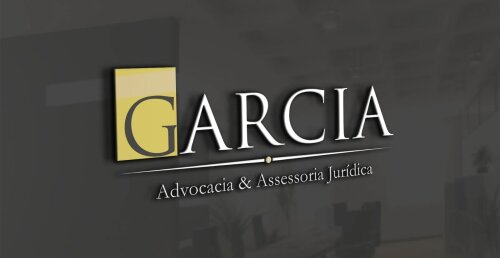Best Landlord & Tenant Lawyers in Caldas da Rainha
Share your needs with us, get contacted by law firms.
Free. Takes 2 min.
Free Guide to Hiring a Real Estate Lawyer
List of the best lawyers in Caldas da Rainha, Portugal
About Landlord & Tenant Law in Caldas da Rainha, Portugal
Landlord and tenant law in Caldas da Rainha, Portugal forms part of the national legal framework established by the Portuguese Civil Code, primarily focusing on the rights and obligations contained within urban and rural lease agreements. Caldas da Rainha, located in the Leiria district, has a vibrant property market, including residential and commercial rentals. The city's regulation of landlord and tenant relations aims to protect both parties through tenancy agreements, security of tenure, rental values, eviction procedures, and dispute resolution mechanisms. Local bylaws and administrative practices can also influence practical aspects of leasing in the municipality.
Why You May Need a Lawyer
Many people in Caldas da Rainha seek legal advice to navigate the complexities of landlord and tenant matters. Common situations that may require legal help include:
- Drafting or reviewing rental contracts for residential or commercial properties
- Resolving disputes related to rent increases or non-payment
- Handling eviction proceedings or defending against unlawful eviction
- Enforcing tenants’ rights regarding maintenance, repairs, security deposits, and peaceful enjoyment of the property
- Addressing early termination of leases
- Dealing with subletting or assignment of contracts
- Managing issues surrounding property damage or liability
- Understanding legal compliance with municipal regulations regarding property rentals
A lawyer with experience in landlord and tenant law will ensure your agreements are valid and that your interests are protected, whether you are a landlord or tenant.
Local Laws Overview
The principal source of landlord and tenant law in Caldas da Rainha is the Portuguese Civil Code, particularly the sections covering urban leases (Arrendamento Urbano). Key aspects of these local and national laws include:
- Written Agreements: All tenancy agreements should be in writing and registered with the tax authorities.
- Rental Value: Initial rent and any subsequent increases must comply with regulations. Increases are subject to rules regarding notice periods and calculation methods.
- Security Deposits: Deposits are permitted, typically equivalent to one or two months' rent, and must be returned after the tenancy unless there is justified deduction for repairs or unpaid rent.
- Lease Duration: Leases can be for a fixed term or indefinite period. Rules differ for termination depending on the type of contract and who initiates it.
- Eviction: Legal procedures exist for eviction, generally requiring a court order unless the tenant voluntarily vacates the property. Unlawful eviction is strictly prohibited.
- Maintenance: Landlords are responsible for structural maintenance, while tenants must keep the property in good order and report damages.
- Tenant Rights: Tenants have the right to privacy, to peaceful enjoyment of the property, and to contest unjustified rent increases or improper retention of deposits.
- Local Regulations: The municipality has additional regulations, particularly concerning licensing for short-term rentals, property safety, and taxation.
Frequently Asked Questions
What should a rental contract include in Caldas da Rainha?
A standard rental contract should detail the identities of the landlord and tenant, address of the property, rent and payment terms, deposit amount, lease duration, renewal conditions, maintenance responsibilities, and termination procedures. It must be in writing and comply with Portuguese law.
Can the landlord increase the rent during the lease?
Rent can only be increased under specific conditions and with proper notice, usually annually and based on legal formulas. The landlord must notify the tenant in writing at least 30 days before the increase takes effect.
How much is a typical security deposit?
Security deposits are generally one or two months’ rent. The specific amount should be agreed in the contract. The deposit must be returned after the lease, minus any deductions for legitimate expenses such as unpaid rent or necessary property repairs.
How can a lease agreement be legally terminated?
Termination depends on the contract and lease type. Both landlord and tenant must observe notice periods stipulated by law, which can vary from 60 to 120 days. Negotiated early terminations are possible if both parties agree.
What should a tenant do if repairs are not being handled?
Tenants should notify landlords in writing and may request intervention by the municipal authorities if urgent repairs are neglected. In some cases, tenants may be entitled to carry out repairs and deduct the costs from rent, but legal advice is recommended before taking any action.
Is subletting allowed in Caldas da Rainha?
Subletting is only permitted if the rental contract allows it or the landlord provides explicit approval. Unauthorized subletting can be grounds for termination of the tenancy.
What can a landlord do if a tenant does not pay rent?
The landlord can issue a formal written demand for payment. If unpaid, the landlord can initiate eviction proceedings through the courts. Self-help measures, such as changing locks, are illegal.
What protections are in place against wrongful eviction?
Portuguese law offers strong protections against eviction without due process. Tenants can challenge unlawful eviction through the courts and may be entitled to compensation if their rights are violated.
What happens to the security deposit at the end of the tenancy?
Once the property is inspected and any outstanding issues are addressed, the landlord must return the deposit. Deductions are only lawful for unpaid rent or documented damages beyond normal wear and tear.
Are there rules for holiday or short-term lets?
Short-term rentals, such as those run as alojamento local (local lodging), require special licenses from the municipality and are subject to additional safety, taxation, and zoning requirements.
Additional Resources
If you need further information or assistance regarding landlord and tenant matters in Caldas da Rainha, consider reaching out to the following:
- Local law firms or lawyers specializing in property and tenancy law
- Câmara Municipal de Caldas da Rainha (Municipal Council), which oversees property licensing, urban planning, and tenant complaints
- Associação dos Inquilinos Lisbonenses and similar tenant associations for tenants’ advocacy and support
- Instituto dos Registos e Notariado (IRN) for tenancy contract registration guidelines
- Local branches of the Ordem dos Advogados (Bar Association) for finding qualified legal professionals
- Serviço de Mediação Imobiliária, for mediation in rental disputes
Next Steps
If you need legal assistance for a landlord and tenant issue in Caldas da Rainha, here is a suggested approach:
- Document your situation thoroughly, including all correspondence, contracts, and evidence of payments or property condition
- Consult with a local lawyer who has experience in landlord and tenant law to review your case and advise on your rights and options
- Contact the relevant municipal department or a tenants’ association for guidance or support if needed
- Ensure all communications, especially formal notices or demands, are made in writing and kept for your records
- Act promptly to avoid missing any legal deadlines for notices or court actions
Seeking professional legal counsel early on can help you resolve disputes effectively and avoid unnecessary complications, ensuring that your rights as either landlord or tenant are fully protected under Portuguese law.
Lawzana helps you find the best lawyers and law firms in Caldas da Rainha through a curated and pre-screened list of qualified legal professionals. Our platform offers rankings and detailed profiles of attorneys and law firms, allowing you to compare based on practice areas, including Landlord & Tenant, experience, and client feedback.
Each profile includes a description of the firm's areas of practice, client reviews, team members and partners, year of establishment, spoken languages, office locations, contact information, social media presence, and any published articles or resources. Most firms on our platform speak English and are experienced in both local and international legal matters.
Get a quote from top-rated law firms in Caldas da Rainha, Portugal — quickly, securely, and without unnecessary hassle.
Disclaimer:
The information provided on this page is for general informational purposes only and does not constitute legal advice. While we strive to ensure the accuracy and relevance of the content, legal information may change over time, and interpretations of the law can vary. You should always consult with a qualified legal professional for advice specific to your situation.
We disclaim all liability for actions taken or not taken based on the content of this page. If you believe any information is incorrect or outdated, please contact us, and we will review and update it where appropriate.









